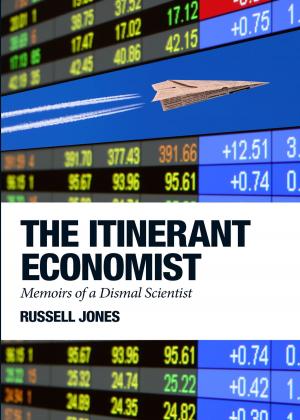Sea Change: How Markets and Property Rights Could Transform the Fishing Industry
How Markets and Property Rights Could Transform the Fishing Industry
Nonfiction, Science & Nature, Technology, Social & Cultural Studies, Political Science, Business & Finance| Author: | Paul Dragos Aligica, H. Sterling Burnett, Birgir Runolfsson, Ion Sterpan, Rachel Tingle | ISBN: | 9780255367424 |
| Publisher: | London Publishing Partnership | Publication: | March 30, 2017 |
| Imprint: | London Publishing Partnership | Language: | English |
| Author: | Paul Dragos Aligica, H. Sterling Burnett, Birgir Runolfsson, Ion Sterpan, Rachel Tingle |
| ISBN: | 9780255367424 |
| Publisher: | London Publishing Partnership |
| Publication: | March 30, 2017 |
| Imprint: | London Publishing Partnership |
| Language: | English |
Government management of fisheries has been little short of disastrous. In many regions, valuable fish stocks have collapsed as a result of overfishing. Ill-conceived regulation also means that every year millions of tons of edible fish are thrown back dead into the sea. While an absence of established property rights means that wild fish are vulnerable to overfishing, the problem is greatly exacerbated by large subsidies. State intervention has created significant overcapacity in the industry and undermined the economic feedback mechanisms that help to protect stocks. This short book sets out a range of policy options to improve outcomes. As well as ending counterproductive subsidies, these include community-based management of coastal zones and the introduction of individual transferable quotas. The analysis is particularly relevant to the UK as it begins the process of withdrawal from the European Union. After decades of mismanagement under the Common Fisheries Policy, Brexit represents a major opportunity to adopt an economically rational approach that benefits the fishing industry, taxpayers and consumers.
Government management of fisheries has been little short of disastrous. In many regions, valuable fish stocks have collapsed as a result of overfishing. Ill-conceived regulation also means that every year millions of tons of edible fish are thrown back dead into the sea. While an absence of established property rights means that wild fish are vulnerable to overfishing, the problem is greatly exacerbated by large subsidies. State intervention has created significant overcapacity in the industry and undermined the economic feedback mechanisms that help to protect stocks. This short book sets out a range of policy options to improve outcomes. As well as ending counterproductive subsidies, these include community-based management of coastal zones and the introduction of individual transferable quotas. The analysis is particularly relevant to the UK as it begins the process of withdrawal from the European Union. After decades of mismanagement under the Common Fisheries Policy, Brexit represents a major opportunity to adopt an economically rational approach that benefits the fishing industry, taxpayers and consumers.















